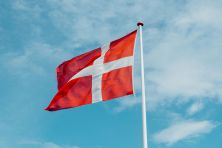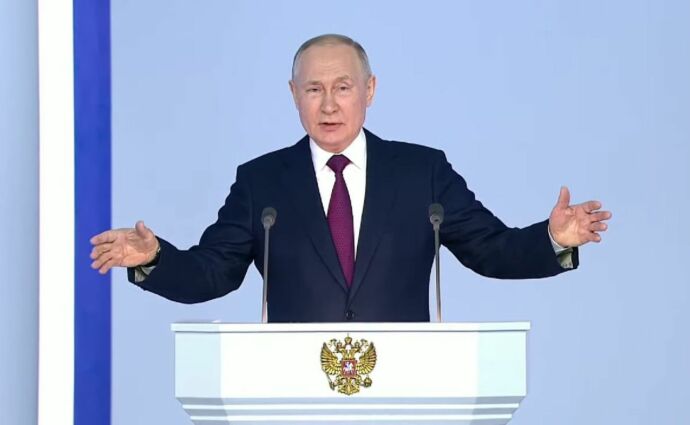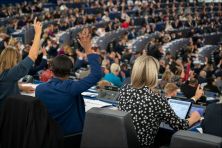The head of the Kremlin, Putin, is unjustifiably mistaking the Russian Federation for the Soviet Union. In this way, he tries to legitimize his claims to the former territories of the USSR, in particular Ukraine. This opinion was voiced today, June 4, by the head of the Center for Domestic Political Studies of the National Institute of Strategic Studies, Vyacheslav Potapenko, on the air of the FREEDOM TV channel.
The political scientist recalled that Russia illegally took the place of the Soviet Union in the UN and the UN Security Council.
“In 1991, when Ukraine regained its independence, the Russian Federation and other independent states were formed, a rather strange story happened, which is not much talked about now. But for some reason, the Russian Federation took the place of the Soviet Union in the UN, in the UN Security Council. It was the Russian Federation that got all the nuclear weapons, in particular as a result of the Budapest Memorandum. And in the minds of many politicians and countries more than 30 years ago, in particular, taking into account the action of Russian propaganda, such an opinion was formed that Russia and the Soviet Union are synonymous,” said the guest of the broadcast.
In the 1940s, during the Second World War, the Soviet Union was also often called Russia, Potapenko added. To this day, the government of the Russian Federation, President Putin, is constantly playing on these nuances of names and meaning.
“Putin passes off the Russian Federation as the Soviet Union. Since the Russian Federation was accepted by the UN Security Council as the successor of the Soviet Union, Putin is promoting the idea that the USSR is, strictly speaking, Russia. In this way, Putin is trying to legitimize his demands, territorial claims on independent states, Ukraine in particular,” Potapenko said.
The political scientist emphasized that a number of countries, which to some extent benefit from this, support this idea. In particular, we are talking about states that had contacts with the Soviet Union, received military-technical and financial assistance from it. And this creates a problem today, Potapenko believes.
“If the NATO countries, the United States of America, Germany, Great Britain finally clearly distinguished in their understanding that the Russian Federation exists as an aggressor, and there are independent states such as Ukraine, Moldova, Georgia, etc., then in the diplomatic formulas of many other countries of the world, I emphasize, those who had relations with the Soviet Union continue to have a kind of double understanding, which is pedaled by Russian propaganda,” Potapenko emphasized.
And the task of the Ukrainian state and diplomacy, he says, at all international platforms, first of all at the UN, is to clearly emphasize that the Russian Federation is not equal to the Soviet Union, that there are many states that left it and have their own sovereignty, a territory that is recognized by at the international level, including the Russian Federation.
This problem mainly affects the countries of the Global South, as well as the People’s Republic of China.
“Many analysts have noticed that China has never said anything clearly about this situation. That is, in what form does he respect the sovereignty of Russia and the countries of the former USSR. Eastern countries, Chinese diplomacy is quite often prone to such double meanings, a game of uncertainty. That is, China reserves the right to interpret sovereignty and independence depending on the course of hostilities, on the course of world diplomacy, and to interpret it one way or another. This is the problem we need to solve,” the political scientist believes.
Unfortunately, this kind of problem cannot be solved quickly, because it is about people’s consciousness. But promoting the understanding that the Russian Federation is not equal to the Soviet Union, and that Ukraine, Moldova, Georgia, Kazakhstan and others are independent states that have their own rights, sovereignty, and territory, is very important, the expert added.













